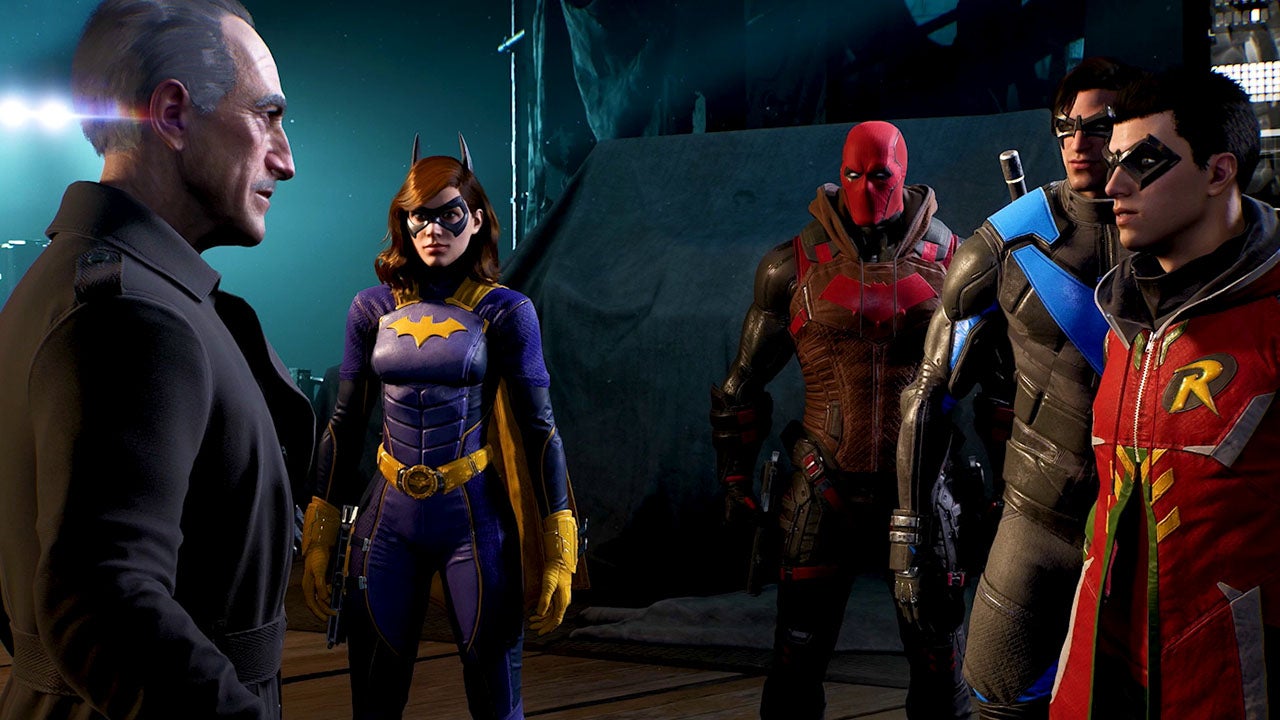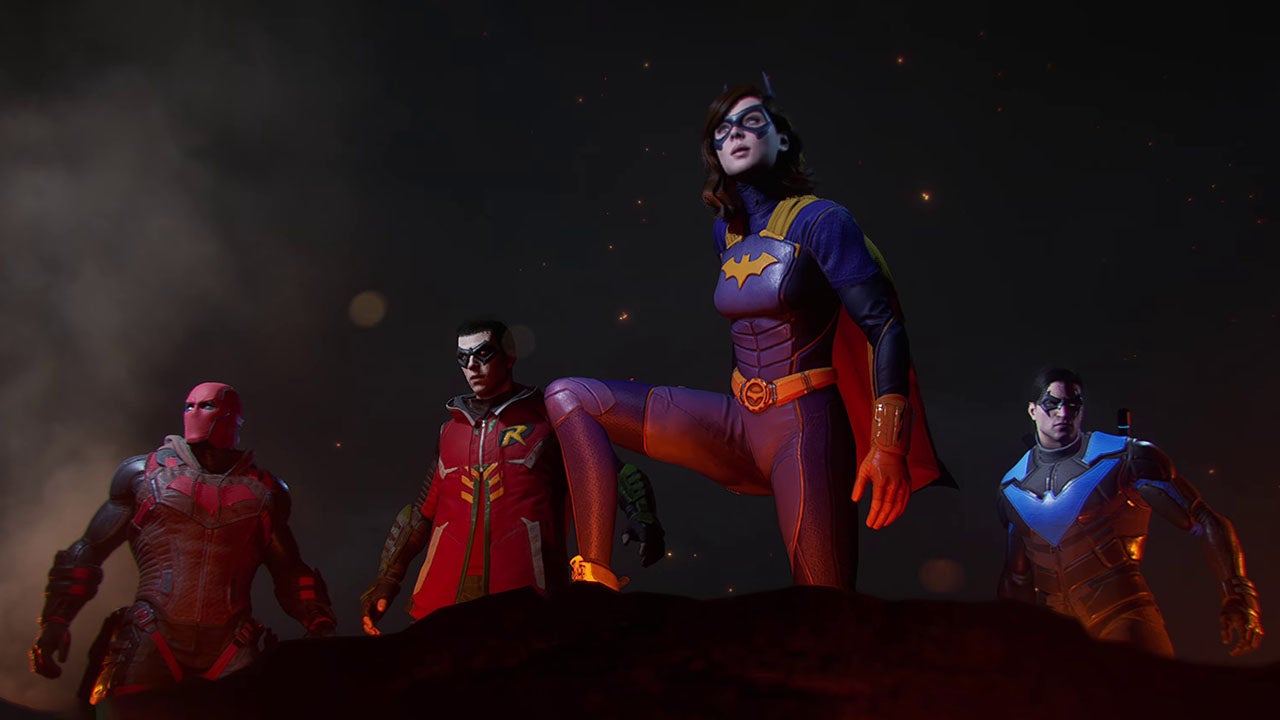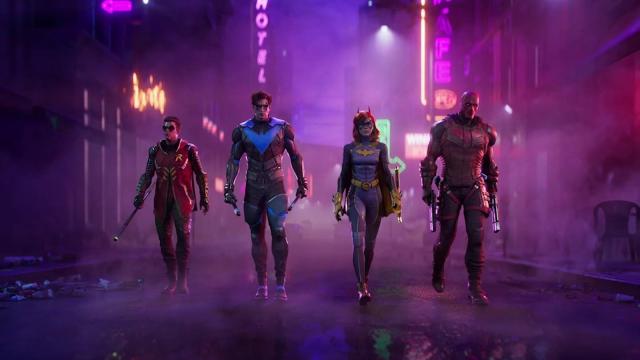At a time when superheroes are ridiculously omnipresent in popular culture, Batman is among the most prevalent of all. No matter the medium, stories starring or featuring DC’s flagship hero come out with such a frequency that it can sometimes be hard for particular stories to stand out. Even in the stories that focus on his supporting cast, you can bet that he’ll make an appearance at some point another, it’s just a coin flip as to whether or not his presence will overwhelm everything else.
This is the case with WB Games Montreal’s Gotham Knights, which was released towards the end of October. Before it came out, I was on the fence about it; I like Batman, and I like superhero games, but what I was worried about was that Knights would prioritise its gameplay loop and RPG loot over its narrative potential. Beyond that, the game comes nearly a full decade after Rocksteady ended its series of Batman Arkham games with 2015’s Arkham Knight to focus on the Suicide Squad. WB Montreal previously created 2013’s Arkham Origins, and while that game has been reexamined more favourably in the years since, its existence arguably put the developer in a similar position as the heroes of its new game.

Having played nearly 20 hours of it at the time of writing, the game manages to find successfully carve out its own identity, primarily by shining a light on places the Arkham games would often not touch on. Set shortly after Batman’s death following a fight with Ra’s al Ghul, it falls on the Bat’s four disciples — Nightwing (Dick Grayson), Batgirl (Barbara Gordon), Robin (Tim Drake), and Red Hood (Jason Todd) — to defend Gotham in his absence. “Batman being dead” is a well-used story conceit, and Gotham Knights solidly hits all the beats that come with that territory. Tim (a high schooler in this universe) is openly uncertain if the team is up to protecting Gotham and his place in the team, Jason’s pissed off and working through his still fairly recent resurrection and subsequent rejoining of his family after previously being on the outs, that sort of thing.
What helps Knights stand out is how much WB Games truly commits to this being an ensemble story. The dialogue between the foursome feels cut from recent team-up comics, particularly in the optional character beats scattered around their headquarters and parts of Gotham. Everyone’s given time to interact with each other; one scene will see Barbara vent to Jason about how she’s beginning to forget the face of her late father Jim Gordon, and in the next, Dick will pester Jason as the latter’s silently brooding on rooftops in Gotham. In story cutscenes where the group debriefs their findings, Tim will accidentally bring up Jason’s resurrection, or have some brotherly ribbing with Dick. Sometimes the voice acting can be hit or miss, but the group as a whole is well-characterised and play off each other well.
The primary villain of Gotham Knights is the Court of Owls, but the game also features a small selection of Batman villains in their own isolated questlines, dubbed “case files” in-game. I committed myself to using one specific hero who’d be the best narrative fit: Jason would deal with Clayface, who’s recently resurfaced after being thought dead; Barbara gets the tech-heavy Mr. Freeze and his gang of Regulators; Tim gets wellness guru Harley Quinn; and Dick often takes the lead on missions involving the Court. Since dialogue varies depending on the character used, it’s become satisfying seeing a particular hero contend with a villain I’ve made their temporary personal nemesis, not unlike tie-in stories during comic event storylines.

Another way in which Gotham Knights makes its own mark is how much more personable it is compared to Rocksteady’s Arkham games. Those titles seemed mostly afraid of the idea of Batman having his costumed allies to rely on, and were similarly very eager to make Gotham City as vacant as possible in its sequels. That kind of isolation fit with Rocksteady’s intended atmosphere, but at a certain point, you want to be Batman in Gotham at its fullest. Knights doesn’t fully make Gotham a vibrant city worth protecting — one that feels like its own character, similar to what Insomniac Games has done with its two Spider-Man games — but there’s enough here to work with, thanks to a civilian information network that previously gave tips to Batman and have now chosen to work with the Knights. When returning back to base, the loading screen displays, among other things, a list of crimes thwarted during the night, which provides a further sense that the team is making some kind of effort in keeping the city safe.
Gotham Knights lacks the polish of its other superhero contemporaries, and in terms of gameplay, it feels like it’s caught between the worlds of a superhero co-op brawler and a potential live service alike. Still, it’s hitting at just the right time when the year is winding down and I’m in the right kind of mindset to be pleasantly surprised. Like its lead quartet of emotionally compromised young adults in colourful costumes, Gotham Knights has its heart in the right place and has a strong foundation for future adventures.
Want more Gizmodo news? Check out when to expect the latest Marvel, Star Wars, and Star Trek releases, what’s next for the DC Universe on film and TV, and everything you need to know about James Cameron’s Avatar: The Way of Water.
